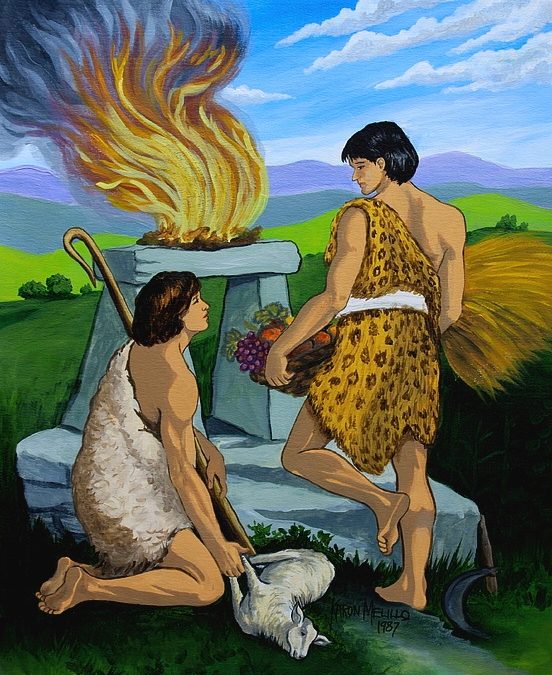Cain and Abel – Offerings to God – Lesson 31 2025
And Adam called his wife’s name Eve because she was the mother of all living. Genesis 3:20 KJV
1 And Adam knew Eve his wife; and she conceived, and bare Cain, and said, I have gotten a man from the LORD. 2 And she again bare his brother Abel. And Abel was a keeper of sheep, but Cain was a tiller of the ground. Genesis 4:1-2 KJV
Adam and Eve were unique among all other humans because they were not born but created mature and commanded by God to “be fruitful and multiply” right after they were created (Genesis 1:28). Eve could have been a mother by the time she was a one-year-old, and Adam could have been taking Cain on walks as a “two-year-old” man.
Scripture doesn’t fill in these details nor does it give us the age of Adam, Eve, Cain, or Abel at the time of the historical account found in Genesis 4:3–5 KJV.
3 And in process of time it came to pass, that Cain brought of the fruit of the ground an offering unto the LORD. 4 And Abel, he also brought of the firstlings of his flock and of the fat thereof. And the LORD had respect unto Abel and to his offering: 5 But unto Cain and to his offering he had not respect. And Cain was very wroth, and his countenance fell.
Directly after the mention of their births, we are told that Cain worked with crops and that Abel was a shepherd. Then we get an undetermined time reference of “in process of time” and the details of the sacrifice. Cain brought to the Lord the fruit of the ground, and Abel brought of the firstborn of his flock and of their fat portions. God respected (accepted) Abel and his offering but did not respect (accept) Cain and his offering.
We don’t know why God had respect for Abel’s sacrifice but not for Cain’s. Over the years there have been three main reasons suggested by theologians and Bible scholars. Briefly:
Position 1 – “Type of sacrifice” In killing animals to clothe Adam and Eve’s sin (Genesis 3:21), God had set forth a pattern that there were to be blood sacrifices offered to him as sin offerings.
Position 2 – “Quality of the sacrifice” Analyzes the text and notices that it specifically mentions that Abel brought the firstborn animals from his flock and also their fat portions while all it says of Cain was that he brought the fruit of the ground.
Position 3 – “Heart behind the sacrifice” looks at statements God made to Cain afterwards, as well as some later scriptural passages. In Genesis 4:7, God asks Cain “If you do well, will you not be accepted?” The clear implication is that Cain had not done well but had unrepentant sin when he offered the sacrifice. Perhaps Cain had an unrepentant heart, and God may have rejected the sacrifice because of Cain’s defiant attitude.
6 And the LORD said unto Cain, Why art thou wroth? and why is thy countenance fallen? 7 If thou doest well, shalt thou not be accepted? and if thou doest not well, sin lieth at the door. And unto thee shall be his desire, and thou shalt rule over him. Genesis 4:6-7 KJV
Some views incorporate two or all three of these positions together. They can easily be seen to have some connection. A sinful attitude would lead towards open defiance of God’s commands or a lack of effort in giving God the best of one’s possessions. The Bible doesn’t tell us exactly what was required of Cain and Abel, thus, we can’t know for sure which of the reasons explain why God respected Abel and his offering and not Cain and his offering.
Cain did not rule over sin but instead allowed a sinful attitude to take hold. In the next lesson, we will explore what happened next.
